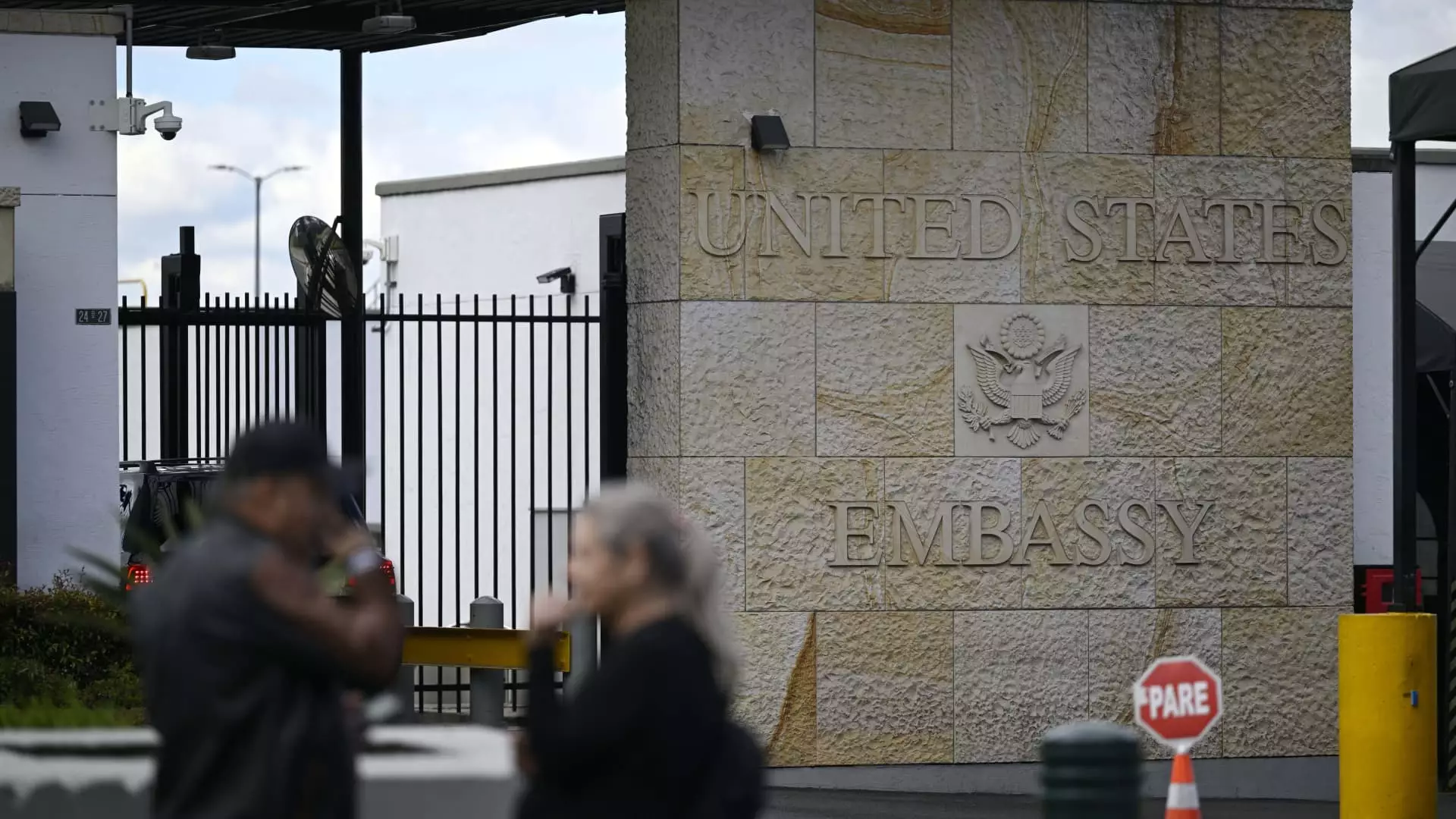The diplomatic landscape of the United States has witnessed significant turmoil under the leadership of President Donald Trump. Recent reports indicate that the administration is actively pursuing a strategy to downsize the workforce within U.S. embassies globally. This decision appears to be part of a larger agenda aimed at restructuring the U.S. diplomatic corps to align more closely with Trump’s “America First” ideology.
Sources have revealed that U.S. embassies have received directives to prepare for a reduction of staffing levels—specifically targeting a 10% decrease in both American and local employees. This plan raises concerns regarding the operational capacity of the embassies, as reductions could hinder their ability to effectively carry out diplomatic engagements and support American interests abroad. Economically, local staff employed by U.S. embassies often play pivotal roles, providing invaluable insights into regional dynamics and facilitating the day-to-day functions of these diplomatic missions. The envisioned cuts could also lead to a talent drain, as experienced personnel may choose to leave instead of enduring uncertain employment conditions.
Additionally, the recent termination of around 60 contractors within the State Department’s bureau dedicated to democracy, human rights, and labor augurs poorly for the future of U.S. international engagement. These areas are considered fundamental to the country’s values and foreign policy objectives; thus, diminishing resources devoted to them raises questions about the administration’s commitment to promoting democracy and human rights worldwide. The potential of further staff reductions across other bureaus only adds to the uncertainty facing both the diplomatic workforce and foreign allies.
The broader implications of these staff reductions resonate beyond mere numbers; they fundamentally alter the structure of American foreign policy. The executive order mandating a revamp of the foreign service signals Trump’s desire to exert firm control over U.S. diplomatic efforts. Under this directive, Secretary of State Marco Rubio is tasked with ensuring that the foreign service adheres closely to the president’s policy goals. This indicates an unsettling trend of politicizing diplomacy, where allegiance to the administration’s agenda may take precedence over professional integrity and long-standing diplomatic practices.
Furthermore, the order establishes a precedent wherein failure to execute the president’s directives could lead to disciplinary action or even job loss. This has profound implications for diplomacy, as it sends a clear signal to diplomats about the risks associated with divergence from the ‘official’ foreign policy narrative. Such an environment could stifle open discussions and critical assessments, which are quintessential to effective diplomacy and international relations.
The moves to dismantle established organizations such as the U.S. Agency for International Development (USAID) and to restructure the Consumer Financial Protection Bureau illustrate a broader strategy of reducing government influence and complexity. Trump’s approach embraces populism, seeking to remove what he refers to as the “deep state,” characterized by bureaucratic institutions that have long guided American governance. While the intent behind such drastic changes may resonate with segments of the American populace, the long-term prospects remain unclear.
With figures like Elon Musk at the forefront of reducing government size, an emphasis on efficiency becomes paramount. However, this efficiency-driven narrative often disregards the nuance and complexity inherent in diplomatic relations, social equality, and humanitarian efforts abroad. The shift towards precipitous cuts can provoke instability in both global partnerships and humanitarian support, which could lead to unintended consequences, adversely affecting both U.S. interests and the broader international community.
The Trump administration’s push for staff reductions across U.S. embassies is indicative of a significant shift in how foreign policy is conceptualized and enacted. While the goal of aligning U.S. diplomacy with an “America First” ideology aims to address perceived inefficiencies within the diplomatic corps, the potential repercussions on staffing levels raise concerns regarding the future of U.S. engagement in global affairs. The consequences of these changes may take time to fully materialize, yet they portend a future where U.S. diplomacy could be characterized by a reduction in global engagement and a realignment away from humanitarian commitments and democratic advocacy—activities that have been staples of American foreign policy for decades.

Leave a Reply